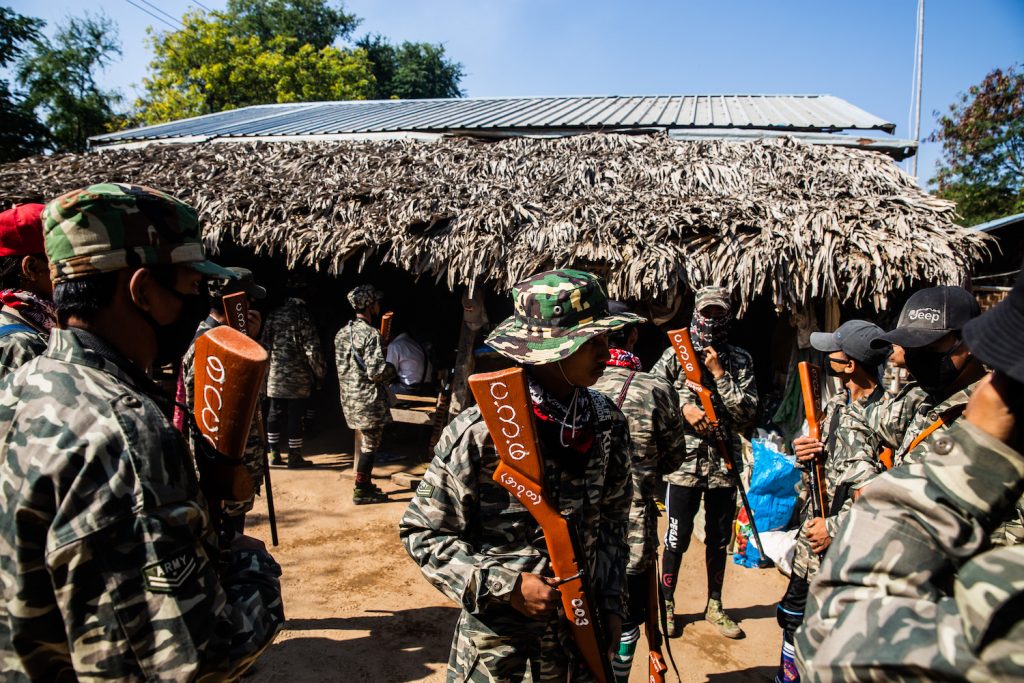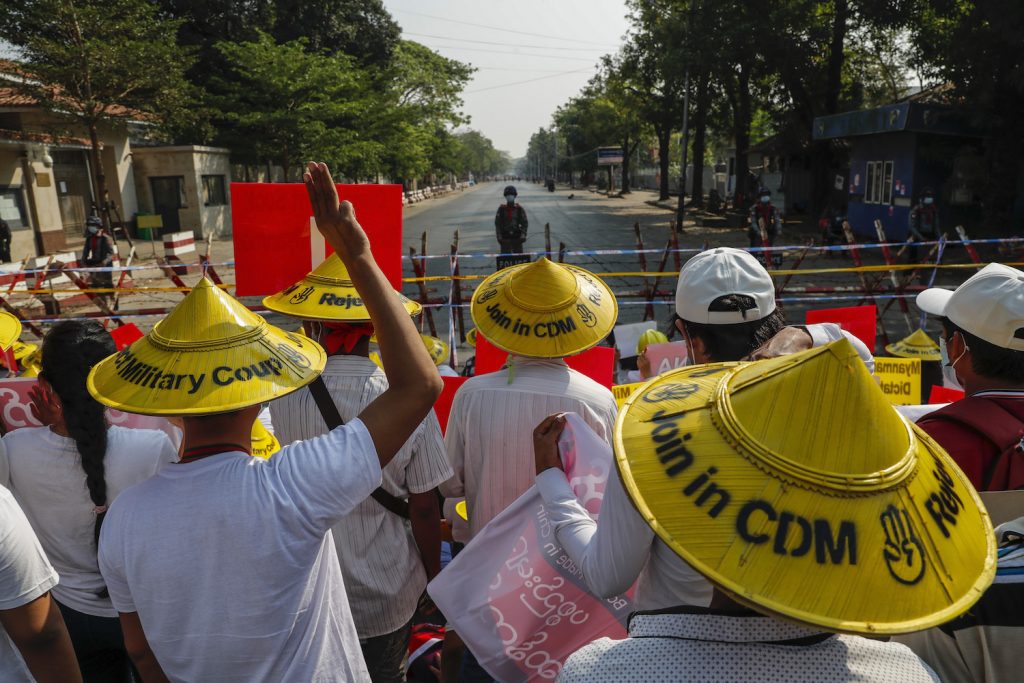By Gray Allan, Falkirk CLP
Following independence from Britain in 1948, Burma/Myanmar was a military dictatorship from 1962 to 2011. A military junta seized power for a second time in February 2021, putting an end to ten years of democracy. ‘Democratic’ Myanmar was always tightly constrained, given that the constitution had been written by the outgoing military junta, retaining sweeping powers for the military. The face of that democratic interlude was that of Aung Sun Suu Kyi, human rights champion, then apologist for the Military over the Rohingya scandal, when hundreds of thousands of refugees were forced across the border into Bangla Desh.
Brutal from the start, the new military junta is using ever more indiscriminate violence in its attempt to consolidate their grip on power. The most recent outrage perpetrated by the Junta was the hanging of four democracy and human rights activists, including a former member of the parliament, in July 2022
Despite the risks and despite the violence the military are facing growing resistance to their dictatorship. The latest challenge they face is from thousands of civil servants who are refusing to work in hopes of crippling the junta’s ability to run the country. Their actions are reported on the website Frontier Myanmar.
One of the civil servants who refused to work was Ma Myat, a staff officer in the Ministry of Electricity & Energy. She said that most of her colleagues said they didn’t want to work under military rule as they had to before 2010. (The previous military dictatorship led by Than Shwe) “The military regime (Tatmadaw) cited vote-rigging as the reason for the coup but I am sure that was not possible. It was a deliberate act of bullying by the military.”
Workers join the Civil Disobedience Movement
Ma Myat joined hundreds of thousands of other civil servants who left their jobs in protest and joined the Civil Disobedience Movement (CDM). “It is not clear if my leave request was approved”, she said. “I didn’t care because I had decided not to go back to the office. The only person who stayed was the Director. All the other staff left as well.”
Strikes and mass resignations by government workers are a serious threat to the Junta. The Tatmadaw does not have the resources within its own ranks to replace the civil service. This is despite the military having substantial interests in the shape of firms in the gems and rare minerals branches of the economy. Action was therefore taken against the civil servants.
Under Myanmar law the passports of all government employees are kept by their departments. They are issued a special passport which identifies them as government employees. If a government employee wants to travel abroad, they must get permission from their Ministry.

Routes out of the country are blocked
All supporters of the CDM who were former government employees were banned from travel. Those who wanted to flee the country had to get themselves new passports. Ma Myat had to pretend to be a housewife.
“As a government employee my passport was held at the office so I had to quickly arrange for a new passport, which was hard, then apply for a visa. I had to pay K300,000 (US$160) to get it issued quickly” That escape route has become much more difficult now that passports must be applied for on-line
Ma Myat’s way out was to apply for a Thai Government scholarship for Myanmar civil servants to study social sciences in Thailand. She was accepted. But even here the Junta tried to intervene, withdrawing the scholarship and asking the Thai government to stop her admission to Chiang Mai University. They failed and today Ma is studying for her Masters and is working as a research assistant.
Internally, the dictatorship has blacklisted former civil servant CDM participants and stops them travelling abroad. Another former employee in the Ministry of Electricity and Energy, Ko Myo, applied for a job in the private sector with a Thai company based in Myanmar.
“I passed the first round of interviews and during the second round I was asked why I had resigned from my post as a civil servant. I explained that I did not want to work for the military council. A week later I got a call to say that I could not get the job because I was CDM and had been sacked by the military”
CDM supporters blacklisted and hundreds killed by the military
The company had been ordered by the military council not to employ CDM participants and that checks were being carried out to see if all those who resigned had approval to leave their jobs! The blacklist of CDM participants had been sent to more than forty companies by the military council. These included Thai Chinese and Japanese companies.
In the period following the coup the protests were peaceful but the repression by the Tatmadaw was brutal. More than 800 people have been killed and more than 6,000 arrested and tortured. 100,000 have fled into the jungle as a result of indiscriminate bombing by the military with more than 600,00 in total displaced. The UN warns that the people now face starvation.

In the face of this bloody repression workers began to set up civilian defence forces in the cites or fled to join ethnic militias which have been fighting the Tatmadaw for decades. The anti-coup forces now organised in the National Unity Government are bringing these groups into the Peoples Defence Force which they say is the precursor of the Federal Union Army.
The Peoples Defence Force faces a formidable foe
The armed resistance to the Myanmar military faces a formidable foe. The Tatmadaw are battle hardened, having been fighting ethnic civil wars for decades. The most recent of these in the genocidal action against the Rohingya people. It remains to be seen how effective a guerrilla campaign in the mountains and jungles will be, alongside armed resistance in the cities. The Myanmar military are not totally isolated, they have strong support among the nationalist elements in the Burmese ethnic group as well as support from conservative Buddhists.
However, the military council’s response to the action of the civil servants in the CDM shows where their real vulnerability lies. Over 36% of the country’s exports are raw materials including petroleum gas, copper, rubber rare earths and precious stones. Conditions of workers in these industries, especially precious stones, have been widely condemned. The Tatmadaw is however heavily reliant on this sector for its income, especially precious stone mining, which it controls through companies set up and run by themselves.
The Myanmar working class have the fate of the Junta in their hands. Without their labour in these key areas, and in other sectors of the economy the military regime would collapse, which goes some way to explaining their hysterical response to thousands of government workers like Ma Myat and Ko Myo abandoning their jobs



